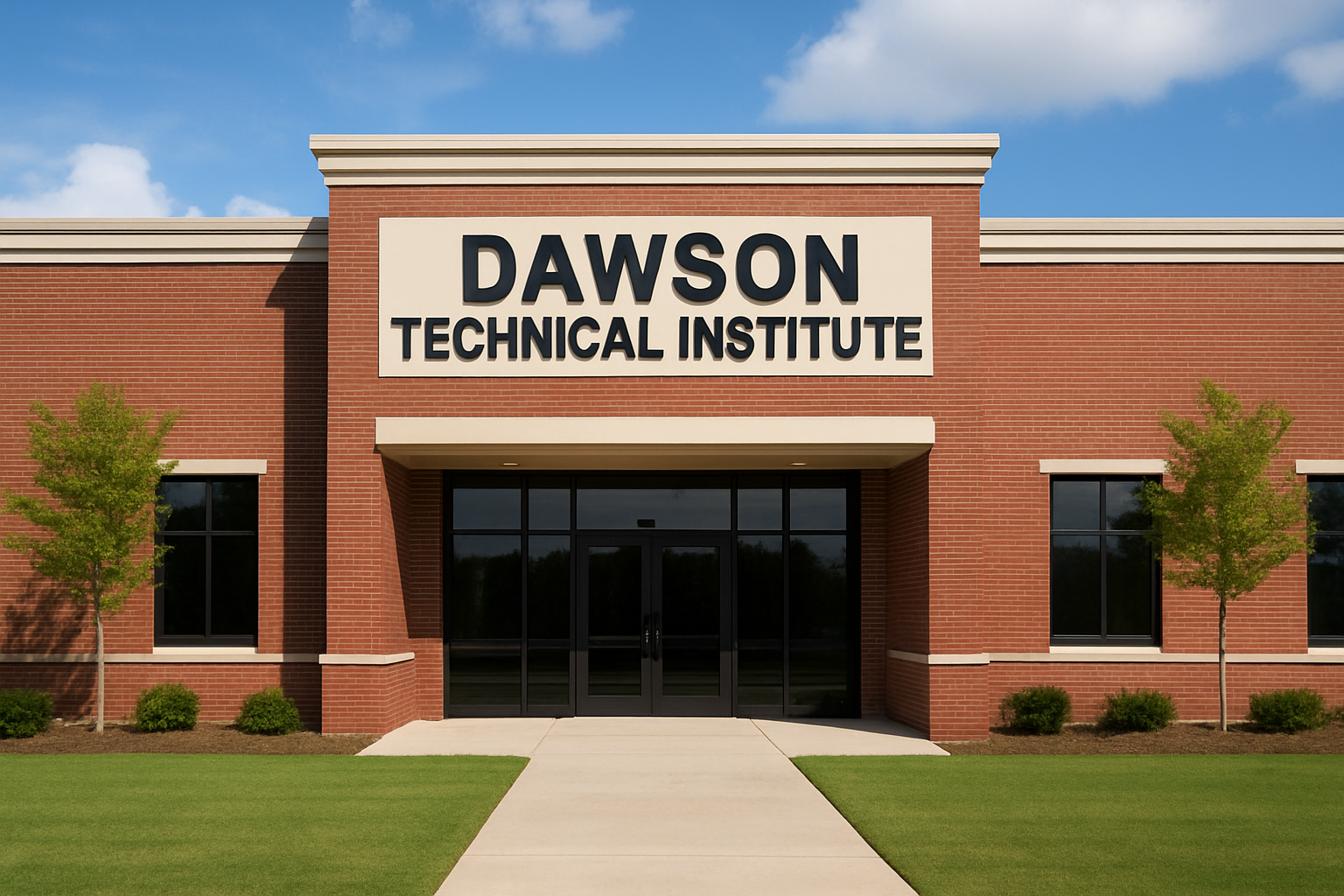Dawson Technical Institute is a vocational and technical training center that prepares individuals for careers in construction, utility trades, and allied technical fields. Located as part of the Kennedy-King College system in Chicago, it offers hands-on education that bridges classroom learning and real-world skills.
In today’s job market, technical training matters more than ever. Many industries—from construction to utilities to infrastructure—face skill shortages. Graduates who can operate equipment, understand safety rules, and apply practical techniques are in demand. Dawson Technical Institute plays a key role in meeting those needs by giving students direct exposure to trade work, not just theory.
At Dawson Technical Institute, the goal is to support students in gaining employable skills. Rather than focusing solely on tests and lecture, the institute emphasizes competency-based education, hands-on labs, real-world projects, and alignment with industry standards. This approach helps students transition more smoothly into careers or apprenticeships.
The History and Mission of Dawson Technical Institute
Dawson Technical Institute was established in 1968 as a job training center for students interested in construction trades and utility careers. Named after U.S. Representative William L. Dawson, the institute has evolved to become a respected hub for trade and technical education in Chicago. Over the decades, it has expanded its offerings, modernized its facilities, and deepened its industry connections.
The mission at Dawson Technical Institute emphasizes industry-validated training. In plain language, this means the courses and curriculum are designed in partnership with the trades to ensure that what students learn is relevant and up to date. The educational philosophy supports competency over mere seat time—students must show they can perform tasks, not just pass exams.
Beyond training individuals, Dawson Technical Institute contributes to the local community and workforce development. By preparing skilled workers, it helps local industries find qualified employees. It also plays a part in efforts to increase representation of underrepresented groups in trades, by working with partners to open paths for women and minorities in construction and utility fields.
Academic and Training Programs Offered
At Dawson Technical Institute, students can enroll in a variety of technical and vocational programs that focus on core trades and utility careers. Some of the programs include welding, carpentry, masonry, overhead electrical line work, plumbing and fire protection, and construction management. These programs aim to give students a solid foundation in their chosen trade, combining classroom education and lab or field work.
In terms of credentials, Dawson Technical Institute offers different levels of certification and diplomas. Some programs award basic certificates (BC), while others offer advanced certificates (AC) for more specialized training. There is also the option of associate degrees (e.g. Associate in Applied Science) in select fields. Beyond initial credentials, Dawson may support continuing education or upskilling for working professionals who wish to add skills or retrain.
A key strength is that the curriculum is aligned with industry standards and often validated by trade unions or employers. Students not only learn trade techniques but also safety regulations, code requirements, and modern tool usage. The institute maintains current laboratories, workshops, and utility systems for practice. This ensures that when graduates enter the workforce, they are not overwhelmed by obsolete methods but ready to contribute.
Admission Process and Enrollment Information
If you are interested in applying to Dawson Technical Institute, here’s a rough outline of how the process typically works. First, prospective students must fill out an application through Kennedy-King College or the relevant admissions portal. Because Dawson is part of the City Colleges system, the institutional application system handles initial entry.
Eligibility criteria often include having a high school diploma or equivalent. Some programs may expect prerequisite knowledge or placement assessments (for example, basic math, reading, or safety aptitude). Be prepared to submit transcripts, identification, test scores, or other documentation as required by the admissions office.
Key dates and deadlines vary by semester or term. Typically, there is a schedule published by Kennedy-King / City Colleges with enrollment windows, orientation periods, and start dates. It’s best to consult the official academic calendar or admissions office for up-to-date deadlines.
If applicants need help, Dawson Technical Institute and its parent college system often provide admissions counseling, support with filling out forms, and guidance on financial aid or veteran assistance. Contacting the admissions or enrollment services office early is wise, especially to clarify any special requirements for trade programs.
Career Opportunities and Industry Partnerships
One of the strongest appeals of Dawson Technical Institute is how directly it links training with real career paths. Graduates may access job placement services or internships as part of their program. The institute works closely with local employers, unions, contractors, and utility companies to connect students to opportunities.
Partnerships are central to Dawson’s model. For example, organizations like F.H. Paschen have actively recruited graduates from specific programs (such as the Highway Construction Careers Training Program, HCCTP). Advisory councils of construction firms and utility providers often consult on curriculum content, ensuring that Dawson’s training reflects what employers expect.
Real-world outcomes for alumni include apprenticeships, full-time jobs, supervisory roles, and further specialization. Some students go on to earn journeyman status, lead construction crews, or become utility technicians. The success stories of former graduates help illustrate how Dawson Technical Institute can be a stepping stone into stable, rewarding careers in skilled trades.
Student Life and Support Services
Life at Dawson Technical Institute involves more than classrooms and workshops. Students typically join a community of learners who share a passion for hands-on work and trade skill development. Though the setting is technical, the institute also fosters peer interaction, study groups, and social support to keep students motivated.
To help students succeed academically, Dawson provides resources like academic advising, tutoring, and career counseling. These services guide students through course planning, skill challenges, and post-graduation transition. If a student struggles with a technical concept, lab instructor support or tutoring may be available.
Support also extends to financial and logistical needs. Many students can access scholarships, grants, or financial aid through the parent college or external partners. In some cases, particular programs or funders will offer support to underrepresented populations. Accessibility services—such as note takers, adaptive equipment, or accommodations—can also help students with disabilities fully participate.
The institute may also offer extra student resources such as childcare labs or learning centers tied to practical trades, depending on program needs. These kinds of supports help students maintain balance while working toward credentials.
Why Choose Dawson Technical Institute?
When comparing technical schools, Dawson Technical Institute stands out for several reasons. First, its deep integration with industry and strong employer partnerships means that what you learn is relevant and current. Courses are not isolated academic exercises—they lead into real trade opportunities.
Second, Dawson emphasizes hands-on training. Rather than learning solely from books or lectures, students engage directly in lab work, tool operation, construction settings, and trade simulations. This practical approach helps graduates hit the ground running when entering the workforce.
Third, the instructors often have industry experience or align closely with trade standards, which adds credibility and real insight. Because the institute is part of an established college system, there is also a level of institutional stability, resource access, and recognition.
In the long term, selecting Dawson Technical Institute can yield benefits in career growth, earnings potential, job stability, and upward mobility. Graduates with solid trade credentials often find that as infrastructure demand and utility maintenance needs grow, their skills remain in demand. The ability to continuously upgrade or specialize also makes this a flexible platform for lifelong learning.
Conclusion – Building a Future Through Technical Education
In sum, Dawson Technical Institute offers a meaningful path for people who prefer to learn by doing and wish to enter skilled trades. Through focused vocational education, it supports students in building credentials that connect to real employment in construction, utilities, and related fields.
Technical training at Dawson has lasting impact because it aligns with industry expectations and helps bridge gaps between learning and earning. Beyond imparting skills, the institute helps students enter the workforce with confidence and readiness.
If your goal is to gain practical, employable skills and build a trade career, Dawson Technical Institute is a substantial option worth exploring. Its blend of hands-on education, industry ties, and student support makes it an effective gateway to skilled work and lifelong learning.
My name is Mustafa, and I have been blogging for over 5 years. I am passionate about sharing complete, accurate, and helpful information with my readers. Along with managing content on The Matcha Read, I also contribute blog posts to premium websites. My goal is to provide valuable insights in a clear and easy-to-understand way, so every reader walks away with useful knowledge.










